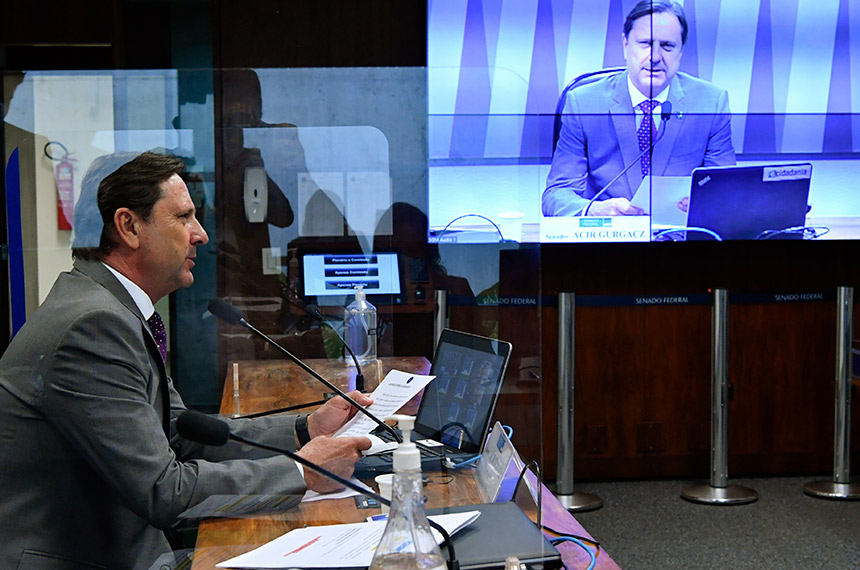The Commission on Agrarian and Agrarian Reform (CRA) on Thursday approved a project regulating the National System for Science, Technology and Innovation in Agriculture (SNPA) and creating a collaborative information network on agricultural research.
Written by Senators Stevenson Valentim (Podemos-RN), Luis Carlos Heinz (PP-RS) and Soraya Thronic (PSL-MS), PL 6.417 / 2019 He received a favorable opinion of Senator Eser Gorgach (PDT-RO) with two amendments. The text now goes to the Committee on Science and Technology (CCT).
– We are in the process of creating a governance system for the various search platforms. We will improve the research to meet the needs of farms and make the technology reach the edge faster – the reporter explained.
According to Gorjacz, there has been a request in the last hours for two amendments by the federal government, which must be analyzed in CCT.
The system is enshrined in the constitution and was created by Law No. 8171 of 1991. The project organizes its work. According to the text, the system will have multi-year plans and annual operational plans prepared by the government, after consultation with federal and state research institutions, producers’ organizations, rural workers and private institutions conducting agricultural research.
In addition, the SNPA will be organized into an articulated network through a digital platform, the concept, development and management of which will be responsible for the public authority. This network should provide consolidated information about public and private education and research institutions; research projects, institutional partnerships and volume of resources; The relationship between researchers and students. Strategies for disseminating innovations generated by research; And the results obtained.
The digital platform must also contain the scientific and technological knowledge of the innovations already produced and the various forms of dissemination approved. Finally, it should provide for the geographical distribution of research institutions and units, the places where the work is carried out and the places where the results of certified innovations can be obtained.
Public and private universities, Technology Innovation Centers (NIT), National Institutes of Science and Technology (INCT), development agencies, research support funds, business incubators, and technology parks may join the SNPA Network on a voluntary basis. Cooperatives, unions and private companies.
To avoid duplication of research and waste of resources, the project foresees that institutions that are part of the system identify technological information about the process of developing inventions in Brazilian and international patent banks, with the assistance of the Industrial Property Authority.
In terms of research funding, public and private institutions that are part of the SNPA will be able to form partnerships.
According to the authors of the proposal, the idea is to integrate the production of institutions, processes and tools necessary for the innovation of Brazilian agriculture. The senators stressed that it would be up to the government to manage the network, which would, among its features, focus information on patented inventions in Brazil and the world.
“In 2017, more than 3 million patents were registered in the world, and the SNPA – as well as the National Science, Technology and Innovation System – will not be able to do without access to this information, at the risk of wasting resources in developing technologies that already exist,” the authors highlight .
In justifying the project, the authors rated SNPA as “very important and strategic for the development of the agricultural sector”. In addition to the positive impact on Brazilian agribusiness “in the face of current and future challenges to sustainability and competitiveness”.
To access the text, the senators held a series of discussions with entities such as the Federation of Agriculture and Livestock of Brazil (CNA), Embrapa, the National Institute of Intellectual Property (Inpi), Coordination for the Improvement of Higher Education Personnel (CAPES/MEC) and the National Development Council Scientific and Technological Research (CNPq), Ministry of Agriculture, Livestock and Supply (Mapa), Institute of Applied Economic Research (IPEA), and Ministry of Science, Technology, Innovation and Communication (MCTIC).
adjustment
On the proposal of the National Agricultural Federation (CNA), the rapporteur introduced an amendment to oblige institutions conducting research and development with public resources to participate in the SNPA.
Gorgash considered the definition of agricultural research proposed by the project ambiguous and made another amendment defining it as “the development of scientific and technological knowledge, in all fields of science, according to official classification, with a view to the development of rural and rural areas. Social and economic activities and developments therein, without prejudice to others which may arise by means of Organization “.
Archive
The CRA has endorsed Senator Chico Rodrigues (DEM-RR) on the suspension of a bill by former Senator Lindbergh Farias (RJ) that sought to improve Minha Casa standards, the Minha Vida program, simplify entrepreneurship and improve the terms of stay for beneficiaries in real estate.
According to the decision, after showing PLS 465/2016, there have been changes in the legislation rendering it obsolete (Law 13465 of 2017 Which 14118 for the year 2021, who is the founder of the Casa Verde e Amarela programme).
Agência Senado (Reproduction permission based on quote from Agência Senado)

“Wannabe internet buff. Future teen idol. Hardcore zombie guru. Gamer. Avid creator. Entrepreneur. Bacon ninja.”

